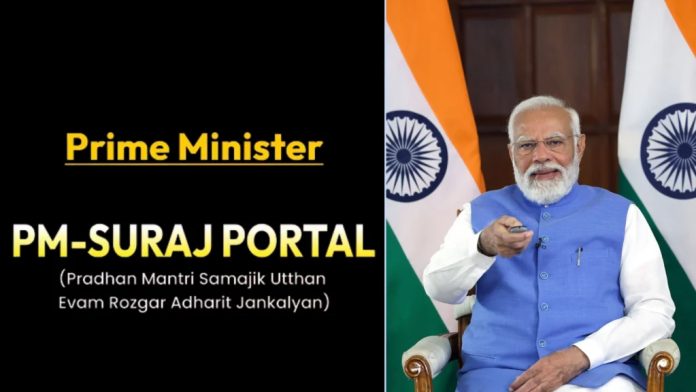Aiming at fostering economic empowerment and social upliftment, Prime Minister Narendra Modi launched the Pradhan Mantri Samajik Utthan evam Rozgar Adharit Jankalyan (PM-SURAJ) national portal. This initiative not only underscores the Government’s commitment to inclusive development but also represents a significant stride towards realising the vision of a self-reliant India where no one is left behind. The sanctioning of credit support to one lakh entrepreneurs from socially disadvantaged sections of the country marks a pivotal moment in our nation’s journey towards equitable prosperity. The significance of this initiative becomes even more pronounced when we consider its impact on regions like Jammu and Kashmir, where 1747 beneficiaries belonging to Scheduled Castes, Other Backward Classes, and the Safai Karamchari community have been provided assistance to kick-start their entrepreneurial ventures. By extending a helping hand to those who have historically faced systemic barriers, the Government is not only fostering economic resilience but also nurturing a culture of self-reliance and dignity. As Lieutenant Governor Manoj Sinha rightly pointed out, this endeavour epitomises the Government’s unwavering resolve to create a conducive environment for the socio-economic advancement of every citizen, regardless of their background.
PM-SURAJ is no doubt a commitment to holistic development, as evidenced by the provision of Ayushman Health Cards and Personal Protective Equipment (PPE) kits to beneficiaries of disadvantaged sections, including Safai Karmcharis, sewer, and septic tank workers. This multi-dimensional approach, which combines economic support with healthcare provisions, exemplifies the Government’s vision of addressing the diverse needs of marginalised communities comprehensively. One of the most inspiring aspects of this initiative is its focus on amplifying success stories at the grassroots level. The Prime Minister’s interaction with a resident of Kathua who utilised Government loan facilities to establish her boutique serves as a testament to the transformative power of entrepreneurship. Neelam Kumari’s journey not only symbolises individual empowerment but also underscores the ripple effect of economic opportunities, wherein she has become a job creator, providing livelihoods to other women in her community.
Moreover, the nationwide outreach event witnessed the participation of approximately three lakh beneficiaries from disadvantaged groups across 500 districts, highlighting the scale and inclusivity of the Government’s efforts. By engaging directly with beneficiaries and amplifying their voices, the Government is not only fostering a sense of ownership but also ensuring that policies are tailored to address the unique challenges faced by different communities.
However, while celebrating these commendable efforts, it’s imperative to recognise that sustainable change requires a concerted and sustained commitment from all stakeholders. In addition to providing financial support, it’s crucial to invest in skill development, mentorship, and infrastructure to nurture a vibrant ecosystem for entrepreneurship to thrive. Furthermore, ensuring equitable access to markets, technology, and resources is essential to empowering entrepreneurs from marginalised backgrounds to compete on a level playing field. Additionally, while initiatives like PM-SURAJ are undoubtedly transformative, their success hinges on effective implementation, transparency, and accountability. It’s incumbent upon the Government to streamline processes, address bureaucratic hurdles, and monitor outcomes to ensure that the intended beneficiaries reap the full benefits of these initiatives. Moreover, fostering collaboration between Government agencies, civil society organisations, and the private sector can amplify impact and drive sustainable change at scale.
The launch of PM-SURAJ and the sanctioning of credit support to one lakh entrepreneurs from socially disadvantaged sections of society represent a turning point in India’s quest for inclusive growth and development. By empowering individuals to chart their paths towards prosperity, the Government is not only transforming lives but also laying the foundations for a more equitable and resilient future. The journey is long, but resolve and intent are there. No doubt, realising the full potential of these initiatives requires a collective effort to address systemic barriers, foster an enabling environment, and ensure that no one is left behind on the journey towards a brighter tomorrow.
Trending Now
E-Paper


